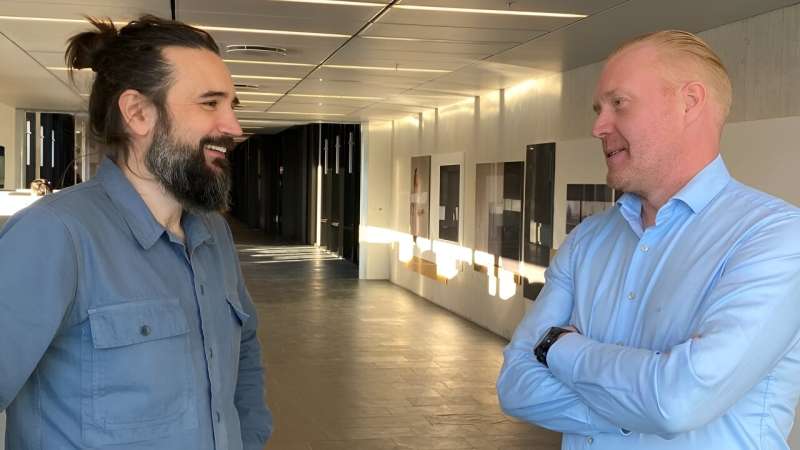This article has been reviewed according to Science X's editorial process and policies. Editors have highlighted the following attributes while ensuring the content's credibility:
fact-checked
trusted source
proofread
No knowledge gap here: Medical students who were taught remotely achieve good exam results during the pandemic

From March 2020 to the beginning of 2022, medical students were taught theoretical subjects digitally, to a large extent. The question was whether four exams in physiology during this period would show that students had gaps in their knowledge and achieved poorer results than those who studied medicine before the pandemic. A total of 1,095 medical students were included in a study on this topic, published in BMC Medical Education.
"It does not appear that they lack any knowledge, quite the contrary. This is good news for both the students, their teachers and leaders. Since we are talking about future doctors, it is good to know that the quality of the teaching was satisfactory, at least in the case of second-year physiology, which we have tested," says professor Kåre-Olav Stensløkken at the Institute of Basic Medical Sciences. He led the study and the examination commission during this period.
They had to make sure that the system was fair
Stensløkken believes that the good results are due to a rapid change in tuition and that thorough and good efforts were made to ensure that exams were held in a fair manner. Stensløkken points to the important work carried out by the examination commission and associate professor Stefan Schauber at the Unit for Health Sciences Education regarding quality assurance.
"The aim was that the system should be fair, both for the students taking the exams at the time and in relation to students from earlier study years. No cheating should be possible. The fact that this work has become the subject of an article is well-deserved and the result of good work carried out by the many involved parties," says Stensløkken.
The quality assurance work paid off
"The challenge was to compare what happened during this period with the years before the pandemic because key elements had been changed: The teaching and the exams. We had access to a good supply of earlier exams, where errors had already been weeded out by previous quality assurance work," says Stefan Schauber.
An important piece of background information for the study was to know which exam questions primarily tested basic knowledge and which singled out the strongest candidates.
"Work done earlier made this easier. This shows the importance of evaluating exams on an ongoing basis. It is well worth the effort," says Schauber.
The exam changed from a written paper to an oral
One of the reasons the change was so vast was that a written exam requiring the physical presence of the candidates had to be changed to an oral exam conducted via Zoom. The number of exam questions and the amount of time allotted was greatly compressed.
The written exam normally lasts five hours and includes around 125 multiple-choice questions. For the oral exam, this was scaled down to 15 questions that the students were to answer in just 20 minutes.
The examiners could ask additional questions
In normal circumstances, grades are given for exams, but the COVID exam was graded as pass/fail.
Since there were fewer exam questions, a special system was developed in order to determine borderline pass/fail cases. The students who were near to failing were given three additional questions which they could answer by talking freely. The examiners were provided with guidelines indicating the points that these students had to mention in order to achieve a pass, and they had to pass a minimum of two of the three questions.
Magnus Løberg, pro-dean of studies, is also pleased with the study. "A key reason why the students have managed so well during the pandemic is also that we have very clever and highly motivated medical students who manage to adapt to new situations. I applaud Stensløkken for taking the opportunity to devise a study for charting students' achievements."
Stensløkken points out that even though the findings are positive, this does not mean that we can argue that digital tuition is better than normal teaching methods.
More information: Stefan K. Schauber et al, No knowledge gap in human physiology after remote teaching for second year medical students throughout the Covid-19 pandemic, BMC Medical Education (2023). DOI: 10.1186/s12909-023-04959-x





















